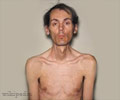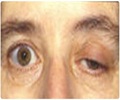The Human Gene Therapy journal has documented two innovative examples of a therapeutic approach, known as exon skipping, which bypasses a disease causing mutation in a gene.

Willem Hoogaars and a team of researchers from France, the Netherlands, Finland, and Germany evaluated a combination of an exon-skipping treatment delivered via an adeno-associated virus (AAV) vector and a compound that inhibits myostatin signaling in a mouse model of Duchenne muscular dystrophy. The dual treatments led to improved muscle force and a decrease in ineffective muscle contractions, as well as increased body weight, muscle mass, and muscle fiber size. They did not, however, improve the effects of each treatment given individually. The results are reported in the article " Combined Effect of AAV-U7-Induced Dystrophin Exon Skipping and Soluble Activin Type IIB Receptor in mdx Mice."
Francesca Gualandi and colleagues, University of Ferrara and University of Padua, Italy, used exon skipping to inactivate mutated RNA messages responsible for defective collagen structure and function in muscle tissue affected by Ullrich muscular dystrophy or Bethlem myopathy. The authors describe their approach in "Antisense-Induced Messenger Depletion Corrects a COL6A2 Dominant Mutation in Ullrich Myopathy."
"This combines two very promising therapeutic approaches in a relevant animal model of muscular dystrophy," says James M. Wilson, MD, PhD, Editor-in-Chief, and Director of the Gene Therapy Program, Department of Pathology and Laboratory Medicine, University of Pennsylvania Perelman School of Medicine, Philadelphia.
Source-Eurekalert












